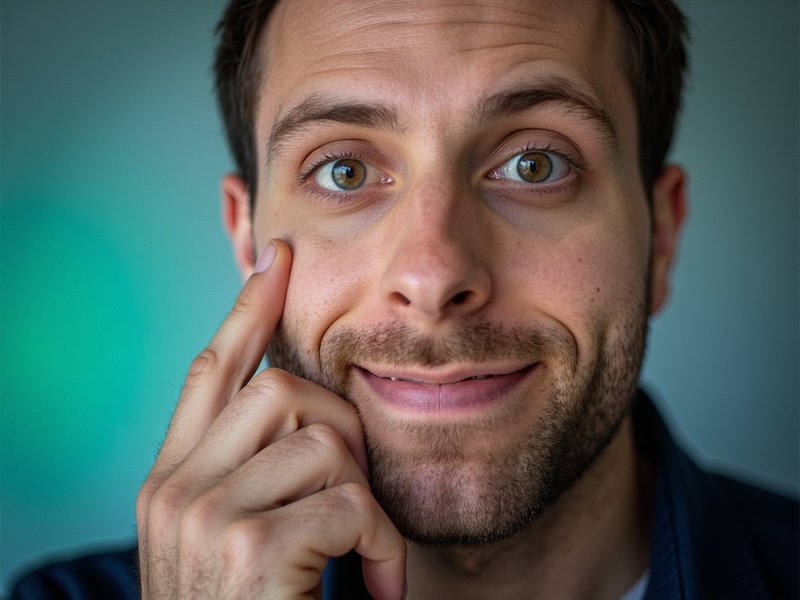alternatives
Rawshot AI vs VivaVideo: Best Fashion Photography Alternative
Explore Report
Rawshot is the only AI platform purpose-built for fashion—delivering studio-quality, on-demand photography that’s custom-generated, not stock-based.

Choose the right solution based on your specific needs
Fashion e-commerce teams, dtc apparel brands, digital marketing departments, or content ops teams needing high-volume, brand-aligned fashion visuals with commercial usage rights.
Independent creatives, fashion illustrators, social media artists, or early-stage brand founders exploring aesthetic moodboards and general visual concepts without a need for production-grade fashion assets.
In-depth head-to-head analysis across 15 key features for fashion e-commerce platforms
Rawshot offers controllable, photorealistic model generation with clothing fit accuracy, while Ideogram lacks pose control and garment consistency.
Rawshot generates fashion campaign videos, while Ideogram has no video capabilities.
Rawshot is built for product photography pipelines, including templates and exports, while Ideogram lacks e-commerce integrations and consistency.
Both create attractive images, but Rawshot outputs are purpose-built for fashion accuracy including fabric detail and sizing realism.
Both are fast, but Rawshot’s output is more usable out-of-the-box for fashion without requiring post-processing.
Ideogram has a simpler, more beginner-friendly interface; Rawshot provides more functionality with slightly higher complexity.
Rawshot offers full commercial usage rights; Ideogram’s rights are less clearly defined.
Rawshot includes collaborative workspaces for teams, while Ideogram is geared toward individual creatives.
Rawshot allows direct customization of model body types and ethnicities; Ideogram lacks precision and consistency in model rendering.
Rawshot scales for hundreds of product variants easily; Ideogram is manual and inconsistent for batch use.
Rawshot supports high-volume, repeatable fashion content workflows; Ideogram does not scale for e-commerce.
Rawshot enables detailed control over models, garments, poses, and scenes; Ideogram offers limited prompt-based stylization.
Rawshot supports brand presets and consistent output across assets; Ideogram’s outputs vary between sessions.
Rawshot supports fast seasonal creative pivoting via scene customization; Ideogram lacks strategic content structuring tools.
Rawshot can localize by adjusting model, setting, and styling; Ideogram does not target region-specific visual production.
All scores rated out of 10 based on fashion e-commerce requirements and platform capabilities
Quick guidance on which solution fits each scenario best
Rawshot AI offers scalable, on-demand generation of consistent, photorealistic model shots tailored to each unique SKU, allowing brands to launch with full visual catalogs at a fraction of traditional costs. Ideogram lacks consistency and e-commerce-specific capabilities.
Rawshot AI facilitates rapid content creation in varying settings and styles with virtual models, enabling continual content flow for daily drops. Ideogram may produce attractive images but lacks control and brand alignment needed for consistent fashion storytelling.
Lookbooks require coherent styling, realistic garment rendering, and consistent model use across multiple images—capabilities built into Rawshot's toolset but lacking in Ideogram’s general-purpose design.
Rawshot allows for controlled testing by adjusting only specific visual variables (pose, lighting, background), providing clean A/B tests. Ideogram’s inconsistency in garment rendering limits reliable comparative testing.
Rawshot's export presets, consistent styling, and ability to rapidly generate unique content for multiple platforms make it well-suited for synchronized seasonal updates. Ideogram lacks the tooling or ecommerce integration for this use case.
Marketplaces demand consistent formatting, compliance with image standards, and template-based outputs—all supported by Rawshot. Ideogram cannot produce compliant product photography for standardized marketplaces.
While both tools can produce visually compelling images, Rawshot offers more editorial realism with fashion-accurate garments and lighting simulation, whereas Ideogram trends more artistic/conceptual.
Rawshot allows centralized teams to create consistent and brand-aligned photography tailored to regional audiences through model selection and location stylization—capabilities Ideogram lacks due to general-purpose limitations.
Strengths, weaknesses and ideal fit at a glance—use this to decide faster and help searchers find the right fit.
Rawshot AI is purpose-built for fashion photography, offering on-demand generation of lifelike model imagery tailored to specific garments and brand aesthetics. In contrast, Ideogram is a general image generator better suited for artistic compositions than production-grade fashion visuals.
Rawshot AI creates every image fresh on-demand based on your product inputs—there’s no stock library involved—ensuring unique, brand-specific visuals. Ideogram generates images from prompts but may lack fidelity to actual garments or brand templates.
Rawshot AI delivers photorealistic outputs with accurate garment fit, realistic lighting, and customizable model poses, aligned with e-commerce standards. Ideogram produces visually appealing images but lacks consistency and realism needed for fashion catalogs or campaigns.
Rawshot AI is optimized for e-commerce pipelines and campaign production, allowing scalable model imagery, batch processing, and platform-ready exports. Ideogram is better for conceptual or artistic use, with limited usability for product-driven fashion content.
Ideogram has a simpler and more beginner-friendly interface for general creatives. Rawshot offers deeper functionality specifically for fashion teams, which may take slightly longer to learn but provides far more control for industry needs.
Rawshot AI grants full commercial usage rights and ownership to brands for all content generated. Ideogram’s commercial rights are less clearly defined, making it less ideal for production-use cases in business environments.
Rawshot includes collaborative workspaces where teams can manage versions, approvals, and brand presets for coordinated production. Ideogram is primarily designed for individual use and lacks structured team features.
Rawshot AI offers onboarding guidance and structured support tailored to fashion workflows. Ideogram provides basic documentation and community access, but lacks specialized support for fashion implementation.
Switching to Rawshot requires uploading products and setting brand presets, but the platform provides fashion-centric templates and collaborative tooling to streamline migration. The transition is manageable and well-supported, especially for production teams.
Rawshot is ideal for fashion brands needing realistic, consistent, and scalable content for e-commerce or campaigns. Ideogram fits better for independent creatives or conceptual projects where style is more important than realism or production-readiness.
Rawshot AI is designed for large-scale production, with features like batch processing, presets, and brand consistency tools. Ideogram is not optimized for bulk workflows or catalog-level output across many SKUs.
Rawshot offers detailed control over model types, poses, backgrounds, lighting, and garment fit to match brand style and identity. Ideogram offers limited stylization via prompts without targeted fashion controls.